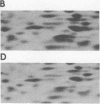Abstract
The spot corresponding to hypoxanthine phosphoribosyltransferase (HPRT; IMP:pyrophosphate phosphoribosyltransferase, EC 2.4.2.8) has been identified in two-dimensional polyacrylamide gels of HeLa cell extracts. This spot is absent in gels of 24 HPRT dificient mutants. A missense mutant displays a new HPRT spot at the same molecular weight but different isoelectric focusing position. Five independently isolated revertants of the missense mutant display spots corresponding to both the wild-type and mutant proteins indicating that they synthesize HPRT from two separate genes. If the missense protein is synthesized from a mutated form of the initially active HPRT gene, then wild-type HPRT protein in the revertants must be snythesized from a newly activated but prevously silent wild-type gene. The newly activated gene in the revertants of the missense mutation appears unstable producing a high frequency of spontaneous HPRT mutants.
Full text
PDF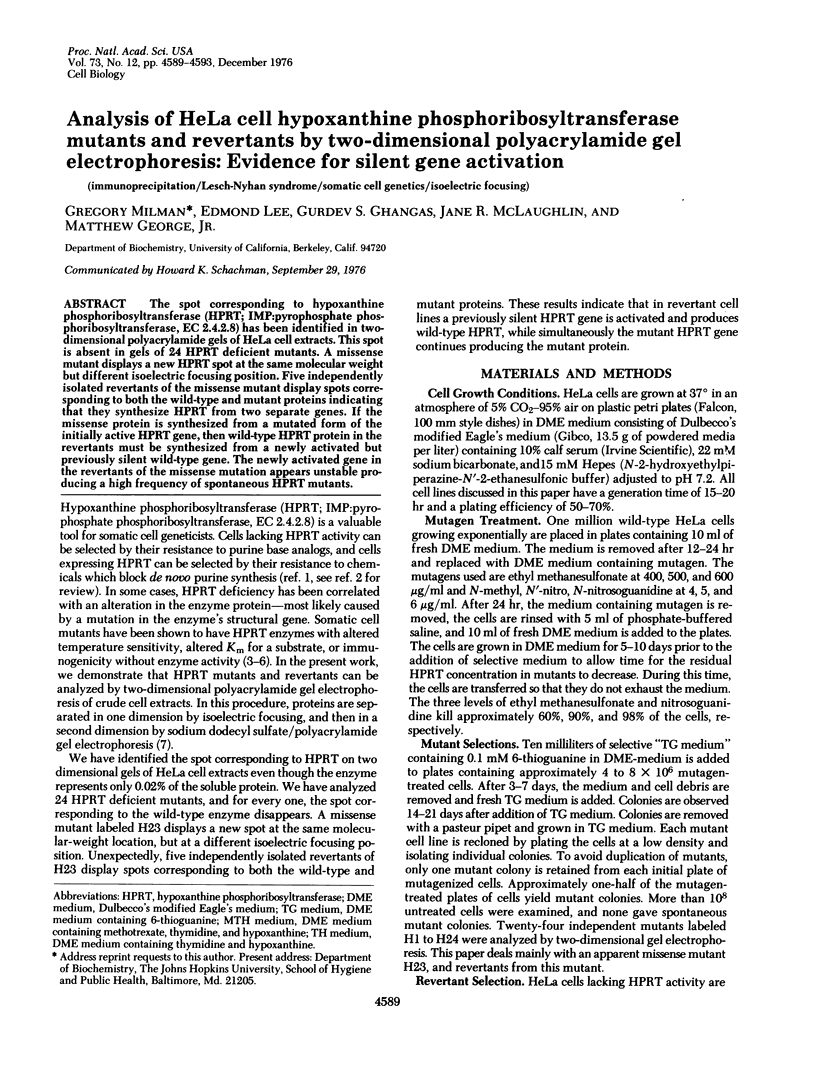
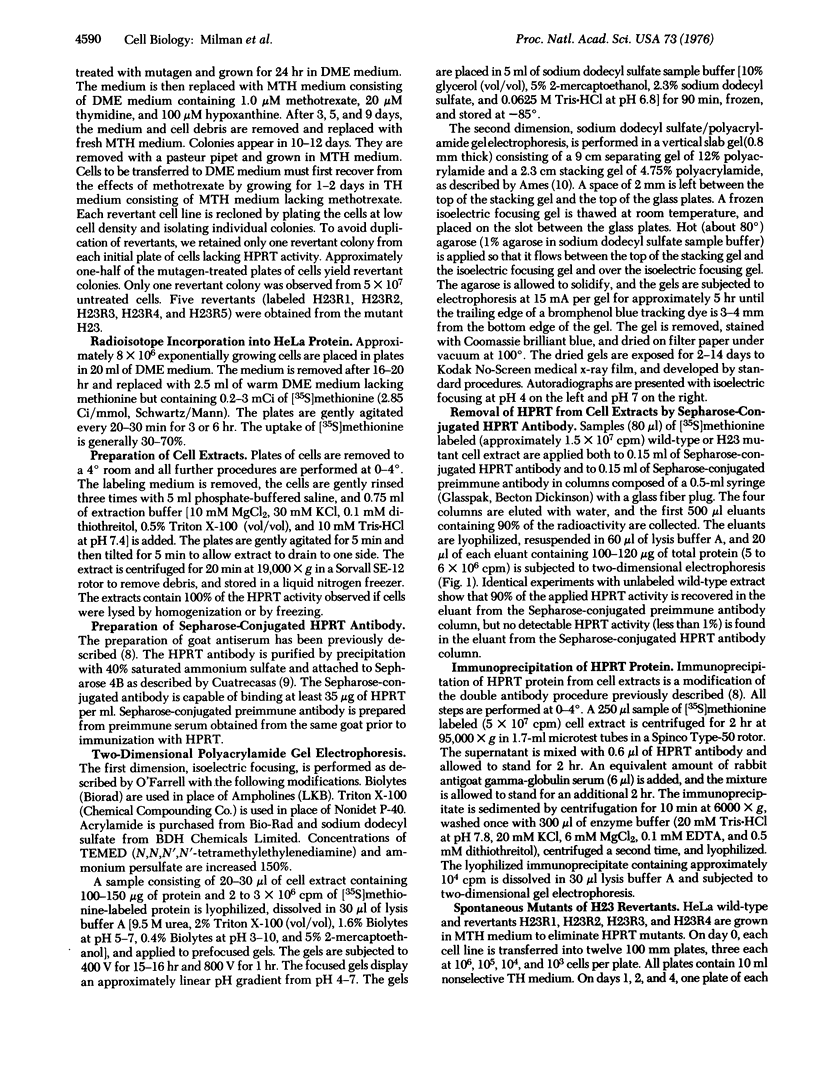
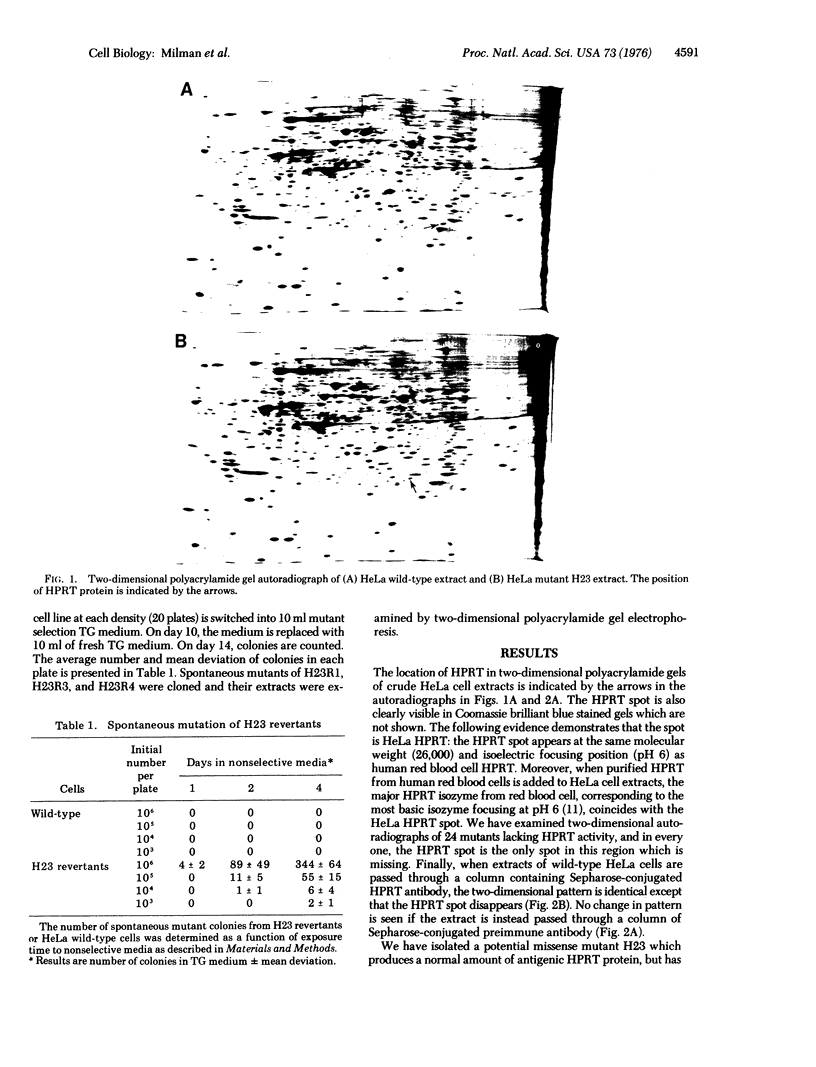
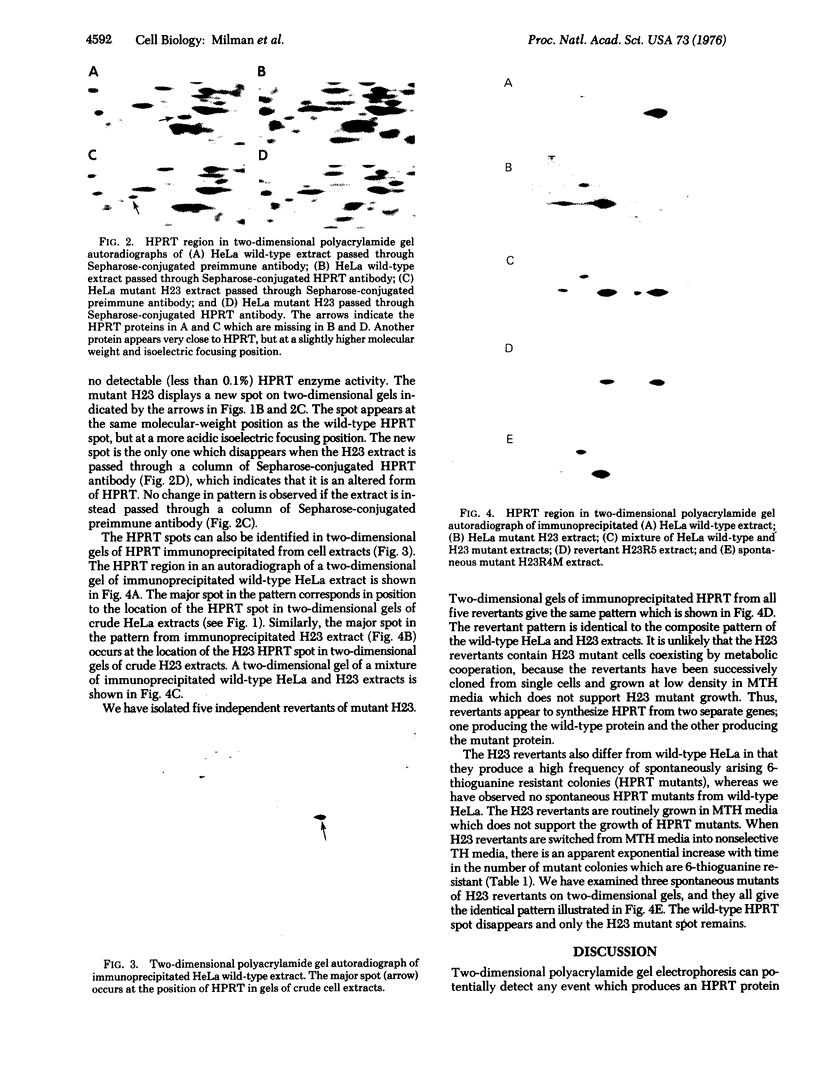
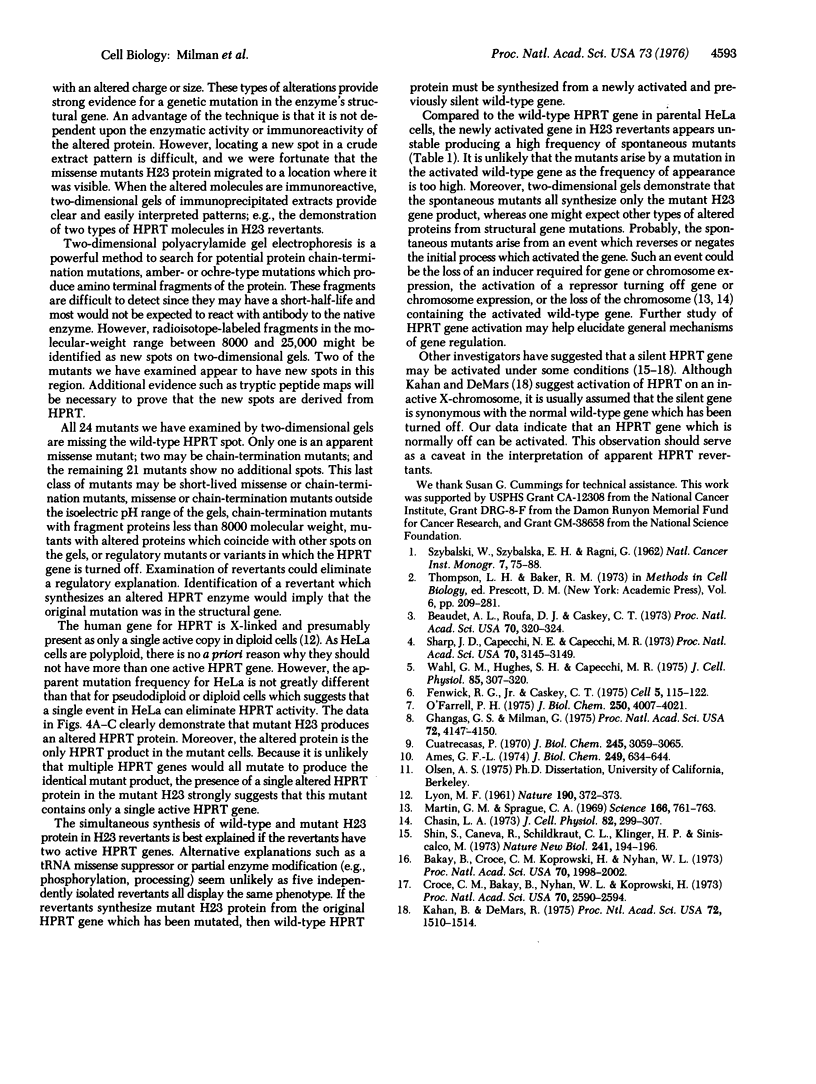
Images in this article
Selected References
These references are in PubMed. This may not be the complete list of references from this article.
- Ames G. F. Resolution of bacterial proteins by polyacrylamide gel electrophoresis on slabs. Membrane, soluble, and periplasmic fractions. J Biol Chem. 1974 Jan 25;249(2):634–644. [PubMed] [Google Scholar]
- Bakay B., Croce C. M., Koprowski H., Nyhan W. L. Restoration of hypoxanthine phosphoribosyl transferase activity in mouse 1R cells after fusion with chick-embryo fibroblasts. Proc Natl Acad Sci U S A. 1973 Jul;70(7):1998–2002. doi: 10.1073/pnas.70.7.1998. [DOI] [PMC free article] [PubMed] [Google Scholar]
- Beaudet A. L., Roufa D. J., Caskey C. T. Mutations affecting the structure of hypoxanthine: guanine phosphoribosyltransferase in cultured Chinese hamster cells. Proc Natl Acad Sci U S A. 1973 Feb;70(2):320–324. doi: 10.1073/pnas.70.2.320. [DOI] [PMC free article] [PubMed] [Google Scholar]
- Chasin L. A. The effect of ploidy on chemical mutagenesis in cultured Chinese hamster cells. J Cell Physiol. 1973 Oct;82(2):299–307. doi: 10.1002/jcp.1040820218. [DOI] [PubMed] [Google Scholar]
- Croce C. M., Bakay B., Nyhan W. L., Koprowski H. Reexpression of the rat hypoxanthine phosphoribosyltransferase gene in rat-human hybrids. Proc Natl Acad Sci U S A. 1973 Sep;70(9):2590–2594. doi: 10.1073/pnas.70.9.2590. [DOI] [PMC free article] [PubMed] [Google Scholar]
- Cuatrecasas P. Protein purification by affinity chromatography. Derivatizations of agarose and polyacrylamide beads. J Biol Chem. 1970 Jun;245(12):3059–3065. [PubMed] [Google Scholar]
- Fenwick R. G., Jr, Caskey C. T. Mutant chinese hamster cells with a thermosensitive hypoxanthine-guanine phosphoribosyltransferase. Cell. 1975 Jun;5(2):115–122. doi: 10.1016/0092-8674(75)90019-7. [DOI] [PubMed] [Google Scholar]
- Ghangas G. S., Milman G. Radioimmune determination of hypoxanthine phosphoribosyltransferase crossreacting material in erythrocytes of Lesch-Nyhan patients. Proc Natl Acad Sci U S A. 1975 Oct;72(10):4147–4150. doi: 10.1073/pnas.72.10.4147. [DOI] [PMC free article] [PubMed] [Google Scholar]
- Kahan B., DeMars R. Localized Derepression on the Human Inactive X Chromosone in Mouse-Human Cell Hybrids. Proc Natl Acad Sci U S A. 1975 Apr;72(4):1510–1514. doi: 10.1073/pnas.72.4.1510. [DOI] [PMC free article] [PubMed] [Google Scholar]
- LYON M. F. Gene action in the X-chromosome of the mouse (Mus musculus L.). Nature. 1961 Apr 22;190:372–373. doi: 10.1038/190372a0. [DOI] [PubMed] [Google Scholar]
- Martin G. M., Sprague C. A. Parasexual cycle in cultivated human somatic cells. Science. 1969 Nov 7;166(3906):761–763. doi: 10.1126/science.166.3906.761. [DOI] [PubMed] [Google Scholar]
- O'Farrell P. H. High resolution two-dimensional electrophoresis of proteins. J Biol Chem. 1975 May 25;250(10):4007–4021. [PMC free article] [PubMed] [Google Scholar]
- Sharp J. D., Capecchi N. E., Capecchi M. R. Altered enzymes in drug-resistant variants of mammalian tissue culture cells. Proc Natl Acad Sci U S A. 1973 Nov;70(11):3145–3149. doi: 10.1073/pnas.70.11.3145. [DOI] [PMC free article] [PubMed] [Google Scholar]
- Shin S., Caneva R., Schildkraut C. L., Klinger H. P., Siniscalco M. Cells with phosphoribosyl transferase activity recovered from mouse cells resistant to 8-azaguanine. Nat New Biol. 1973 Feb 14;241(111):194–196. doi: 10.1038/newbio241194a0. [DOI] [PubMed] [Google Scholar]
- Wahl G. M., Hughes S. H., Capecchi M. R. Immunological characterization of hypoxanthine-guanine phosphoribosyl transferase mutants of mouse L cells: evidence for mutations at different loci in the HGPRT gene. J Cell Physiol. 1975 Apr;85(2 Pt 1):307–320. doi: 10.1002/jcp.1040850217. [DOI] [PubMed] [Google Scholar]






